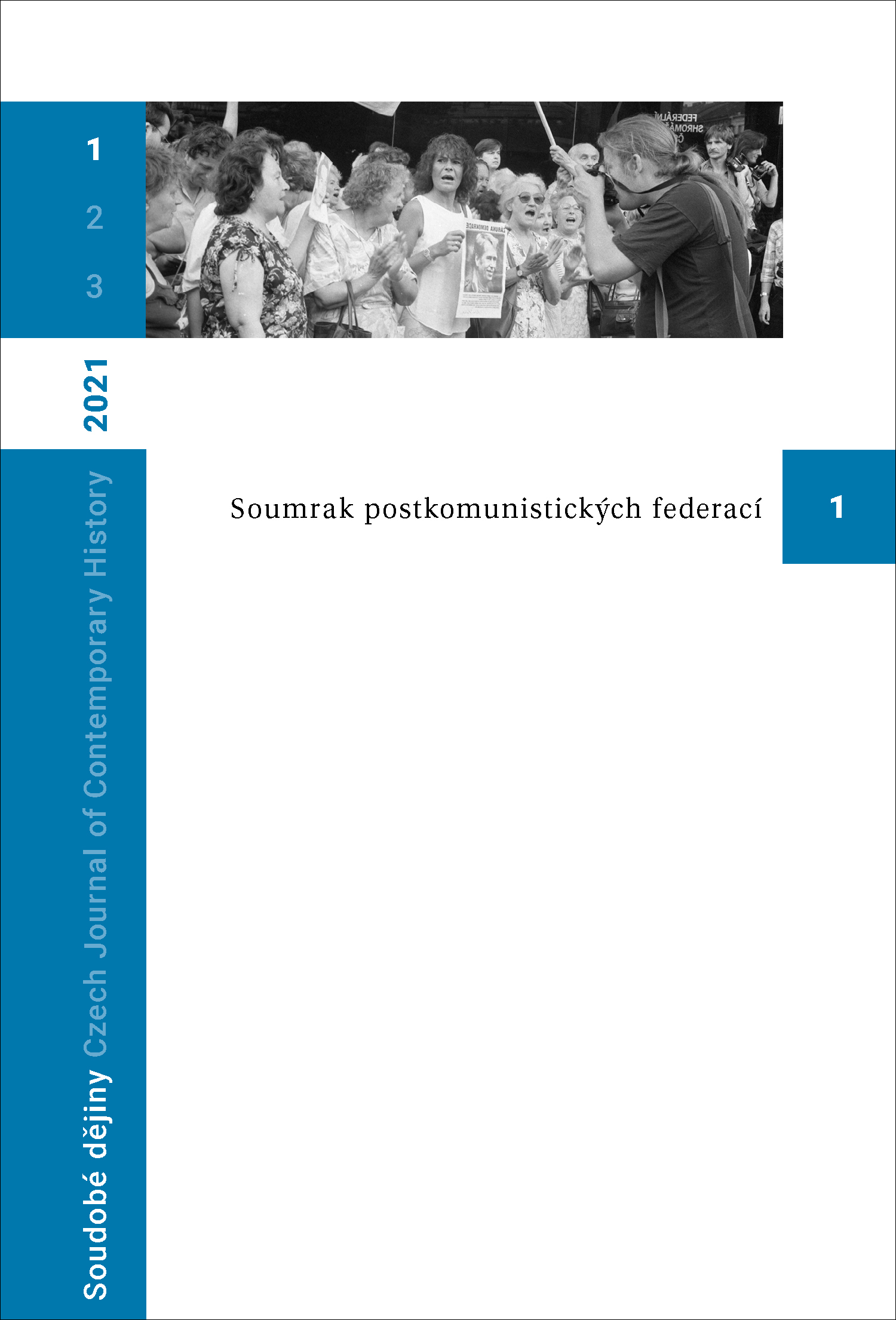Poslankyně neruského původu v sovětském parlamentu, 1989–1991
Female Deputies of non-Russian Descent in the Soviet Parliament, 1989–1991
Intersectionality in an Imperial Situation
Author(s): Ivan SablinSubject(s): Politics / Political Sciences, History, Ethnohistory, Political history, Post-War period (1950 - 1989), Transformation Period (1990 - 2010), History of Communism, Post-Communist Transformation
Published by: AV ČR - Akademie věd České republiky - Ústav pro soudobé dějiny
Keywords: Soviet Union;Congress of People's Deputies;Parliament;female deputies;perestroika;federalism;nationalism;democratic transition;grievances;intersectionality;imperial situation;
Summary/Abstract: The study focuses on the position of female deputies of non-Russian descent in parliamentary debates on the perestroika in the last years of the existence of Soviet Union. The key issues the author examines concern the hardships – as defined by the English term “grievances”, which denotes a variety of sources of political deprivation resulting in collective acts – these female deputies were pointing out, and what potential solutions they were proposing to mitigate or eliminate them. The most important forum where these debates were taking place was the Congress of People’s Deputies (S’ezd narodnykh deputatov), which arose from partly pluralistic elections, was the highest body of state authority of the Soviet Union from 1989 to 1991, and meant a significant progress in Gorbachev’s reform Communist leadership’s efforts to democratize the political system. Gender-wise, the body was very unbalanced as women accounted for just 352 out of its 2,250 elected members. The author work with stenographic records of speeches of the female deputies of non-Russian descent delivered during five sessions of the Congress of People’s Deputies, viewing them through a prism of concepts of “intersectionality” and “imperial situation”, which permit capturing the diversity of its composition and acts in the form of relations between various social categories (nationality/ethnicity, gender, region, profession etc.), their overlapping and self-categorization of players. The speeches of the female deputies often accentuated national grievances and hardships, which fact is indicative of a considerable importance of nationalism in Soviet discussions about the perestroika and in the systemic crisis of the USSR at the turn of the 1980 sand 1990s. However, they also show that viewing problems in a nationalism-tinged perspectives did not necessarily mean seeking a nationalist solution, as many of the female deputies preferred looking for a solution within the Soviet Union to that consisting in sovereignty or even independence of its republics. The female deputies also insistently reflected urgent social, economic, professional, environmental, and local problems. The final part of the article describes political careers of the female deputies after the disintegration of the Soviet Union.
Journal: Soudobé Dějiny
- Issue Year: XXVIII/2021
- Issue No: 1
- Page Range: 44-69
- Page Count: 26
- Language: Czech

